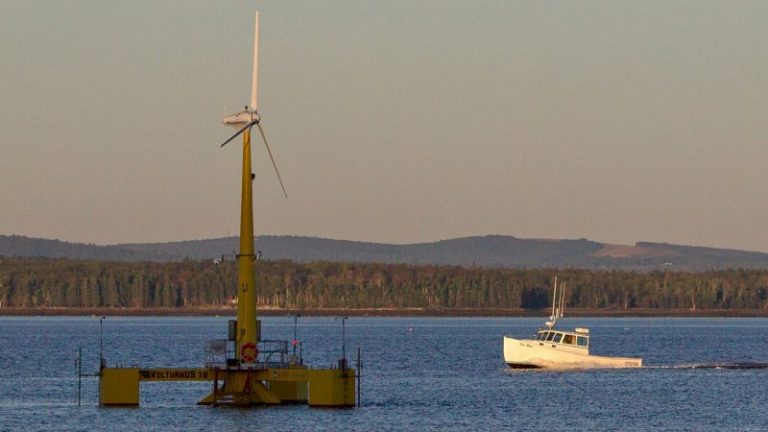Maine is poised to launch an offshore wind program that would meet clean energy goals and produce enough power for about 900,000 homes from floating wind turbines in the Gulf of Maine.
The legislation, which was endorsed by lawmakers Tuesday, calls for requests for proposals to be issued for 3,000 megawatts of electricity from offshore wind turbines by 2040. That’s enough electricity to power about half of Maine’s electricity load.
‘This bill means jobs. It means lower, more stable energy prices, while at the same time addressing climate change. We need to pass this bill now,’ said Democratic Sen. Mark Lawrence, the bill’s sponsor.
Legislation was revised, combined with another bill and reintroduced to address Democratic Gov. Janet Mills’ concerns about labor agreements, causing her to veto an earlier bill. The offshore wind bill passed both chambers of the Legislature in initial votes Tuesday.
Approval puts Maine on a path to catch up with other states that already have offshore wind projects. The catch, however, is that the wind turbines would be farther offshore than those projects, and would involve floating turbines. It also includes incentives aimed at ensuring wind power developers steer clear of lucrative lobster fishing grounds.
Lawrence, of York, said previously that he believes the compromise proposal has necessary ‘guardrails in place to make sure this is done right and truly benefits Mainers.’
The U.S. Bureau of Ocean Energy Management already approved projects that are now under construction off Massachusetts, New York and Rhode Island, and it gave the green light earlier this month for New Jersey’s first offshore wind farm to begin construction. Next month, it will hold an auction for leases in the Gulf of Mexico.
In Maine, the timeline calls for the federal lease sales to be completed next year and for the state to release request for proposals to operate the offshore wind turbines in early 2026.
The Gulf of Maine is considered a prize when it comes to consistent, powerful winds, but the water is too deep for traditional wind turbines that are anchored to the ocean floor. Maine officials hope companies will license technology from the University of Maine, which has been pioneering precast floating turbines that can be built on land and towed to sea.
‘This is the bill that will jumpstart the offshore wind industry in Maine,’ said Jack Shapiro, climate and clean energy director for the Natural Resources Council of Maine.
A decade ago, the state was poised to host a $120 million wind project led by Norwegian company Statoil, but Statoil backed out after the state reopened bidding to provide an opportunity to the University of Maine.
The U.S. could need roughly 2,000 of the most powerful turbines to meet its goals to ramp up offshore wind. Doing so would dramatically cut its use of fossil fuels, protect the atmosphere and reduce climate change.
<!–>
–>


